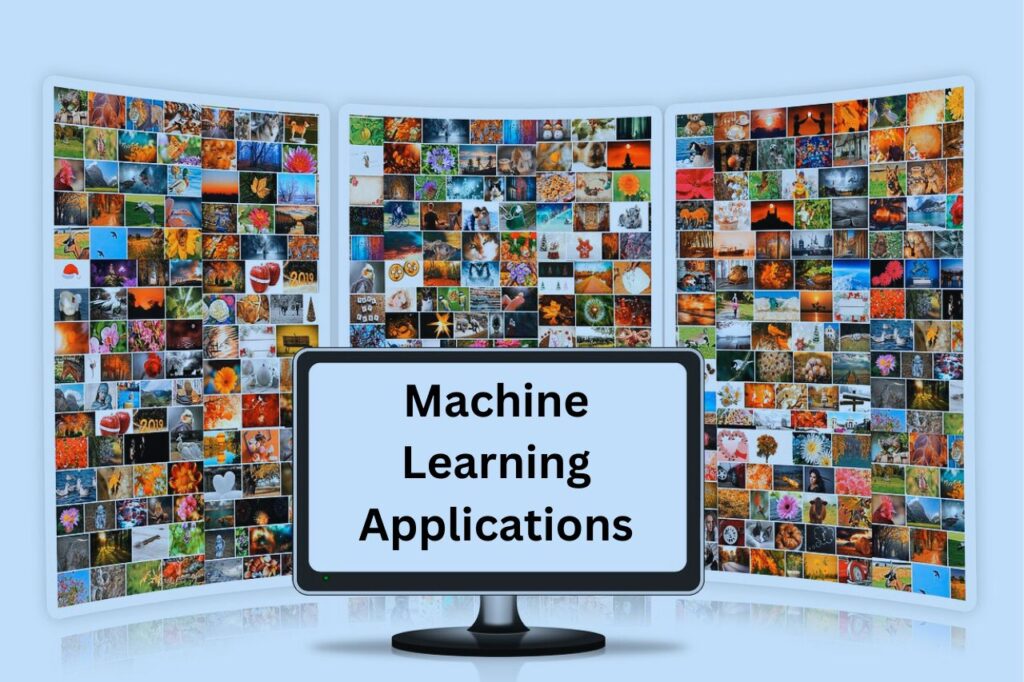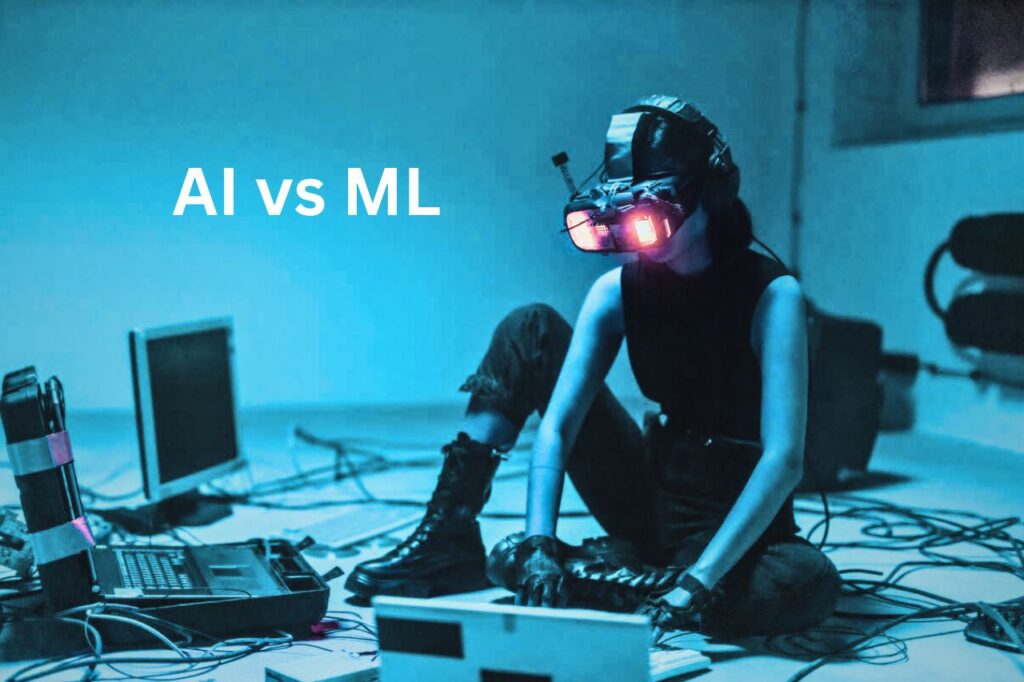Machine learning, a subset of artificial intelligence, has revolutionized the way we approach problem-solving across various domains. By leveraging data and algorithms, machine learning enables systems to learn, adapt, and improve over time without explicit programming. The applications of machine learning span a wide range of fields, showcasing its versatility and impact on our daily lives. In this article, we will delve into 10 amazing machine learning applications that have transformed industries and provided innovative solutions to complex problems.

Application 1: Face Recognition
Face recognition, powered by machine learning algorithms, has become a ubiquitous technology in our modern world. From unlocking smartphones to enhancing security systems, the applications are diverse. Machine learning enables systems to analyze facial features, creating a unique biometric signature for each individual. However, challenges such as bias in algorithms and privacy concerns have raised important questions about the ethical use of face recognition technology. For more information, visit Face Recognition Technology – Privacy and Ethical Concerns.
Application 2: Natural Language Processing
Natural Language Processing (NLP) is a field of machine learning that focuses on the interaction between computers and human languages. Applications include chatbots, language translation, and sentiment analysis. NLP has transformed the way we communicate with technology, making it more intuitive and user-friendly. Despite its advancements, challenges such as understanding context and ambiguity persist. Explore further at Natural Language Processing – Stanford NLP.
Application 3: Recommendation Systems
Machine learning-driven recommendation systems are omnipresent in our online experiences. From streaming platforms suggesting movies to e-commerce sites recommending products, these systems analyze user behavior to provide personalized suggestions. Challenges arise in striking a balance between personalization and user privacy. Learn more about recommendation systems at How Netflix’s Recommendation System Works.
Application 4: Self-Driving Cars
Self-driving cars, a pinnacle of autonomous technology, rely heavily on machine learning for perception, decision-making, and control. Machine learning algorithms process vast amounts of data from sensors to navigate complex environments. Despite advancements, safety concerns and regulatory challenges pose hurdles to widespread adoption. Delve into the statistics at Self-Driving Car Statistics – Statista.

Application 5: Fraud Detection
Machine learning plays a crucial role in detecting and preventing fraudulent activities in various industries. From financial transactions to online interactions, algorithms analyze patterns to identify anomalies indicative of fraud. However, the evolving nature of fraud poses an ongoing challenge for these systems. Explore fraud statistics at Fraud Statistics – Federal Trade Commission.
Application 6: Medical Diagnosis
Machine learning applications in medical diagnosis have significantly improved the accuracy and efficiency of disease detection. Algorithms analyze medical images, patient records, and genomic data to assist healthcare professionals in making informed decisions. Despite these advancements, ethical considerations and data privacy issues must be addressed. Learn more about the impact of AI in healthcare at AI in Healthcare – HealthIT.gov.
Application 7: Speech Recognition
Speech recognition, powered by machine learning, has transformed the way we interact with technology through voice commands. Applications range from virtual assistants to voice-controlled devices. However, challenges like dialectal variations and background noise impact the accuracy of these systems. Gain insights into the evolution of speech recognition technology at Speech Recognition – MIT Technology Review.
Application 8: Image Generation
Machine learning’s ability to generate realistic images has found applications in art, design, and entertainment. Generative models can create new content, from paintings to deepfake videos. Ethical concerns surrounding misinformation and the misuse of image generation technologies highlight the need for responsible development. Explore the possibilities at Generative Models – OpenAI.
Application 9: Sentiment Analysis
Sentiment analysis, a subset of NLP, involves analyzing text to determine the sentiment expressed. Businesses use this technology to gauge customer opinions and improve products or services. However, challenges arise in accurately interpreting complex emotions and contextual nuances. Dive deeper into sentiment analysis at Sentiment Analysis in Business – Towards Data Science.
Application 10: Game Playing
Machine learning has demonstrated remarkable prowess in mastering complex games. From chess to video games, algorithms can learn optimal strategies through reinforcement learning. While these achievements showcase the capabilities of machine learning, ethical concerns and unintended consequences must be considered. Explore the impact on gaming at Machine Learning in Gaming – NVIDIA.
Find the best artificial intelligence websites collections.

Conclusion
In conclusion, the applications of machine learning are vast and continually evolving, shaping the future of technology and problem-solving. From enhancing security through face recognition to revolutionizing healthcare with medical diagnosis, machine learning’s impact is undeniable. Despite the challenges and limitations discussed, the potential for positive change is immense. As we navigate this technological landscape, it is crucial to approach machine learning applications with a mindful and ethical perspective. The journey of innovation continues, and understanding these applications opens the door to a world of possibilities.
Further Reading
- Machine Learning – A Guide for Beginners
- Ethics in Artificial Intelligence – Stanford Encyclopedia of Philosophy
Frequently Asked Questions (FAQs)
Can you provide real-world statistics on the impact of machine learning applications?
Certainly. As of 2022, the global machine learning market is projected to reach $117.19 billion by 2027, with significant contributions from industries such as healthcare, finance, and e-commerce.
How does face recognition technology handle privacy concerns?
Face recognition technology has raised privacy concerns due to potential misuse and the risk of biased algorithms. Regulatory frameworks, such as the General Data Protection Regulation (GDPR), aim to address these issues by providing guidelines on the ethical use of biometric data.
What challenges does natural language processing face in understanding human languages?
NLP encounters challenges in understanding context, handling ambiguous language, and accurately interpreting idioms or colloquial expressions. Ongoing research focuses on improving these aspects for more nuanced language comprehension.
Are recommendation systems solely based on user behavior analysis?
While user behavior analysis is a primary component of recommendation systems, some advanced systems also incorporate collaborative filtering, content-based filtering, and hybrid approaches to enhance the accuracy of suggestions.
How do self-driving cars address safety concerns?
Self-driving cars employ a combination of sensors, cameras, and machine learning algorithms to perceive their surroundings and make real-time decisions. Rigorous testing and regulatory standards are in place to ensure the safety of autonomous vehicles.
What role does machine learning play in medical diagnosis?
In medical diagnosis, machine learning analyzes various data sources, including medical images, patient records, and genetic information, to assist healthcare professionals in accurately diagnosing diseases and recommending appropriate treatments.
How accurate is speech recognition technology in diverse linguistic environments?
Speech recognition technology has made significant strides but may face challenges in diverse linguistic environments, especially with accents and regional variations. Continuous improvement efforts aim to enhance accuracy across different language contexts.
Can machine learning-generated images be used responsibly?
While machine learning-generated images have creative applications, there are concerns regarding their potential misuse in generating deepfake content. Responsible development practices and ethical guidelines are essential to mitigate these risks.
How can businesses leverage sentiment analysis to improve customer satisfaction?
Businesses can use sentiment analysis to analyze customer feedback and reviews, identify areas for improvement, and tailor their products or services to meet customer expectations, ultimately enhancing overall satisfaction.




Pingback: Crucial Variances AI vs ML in 6 Quick Positive Insights